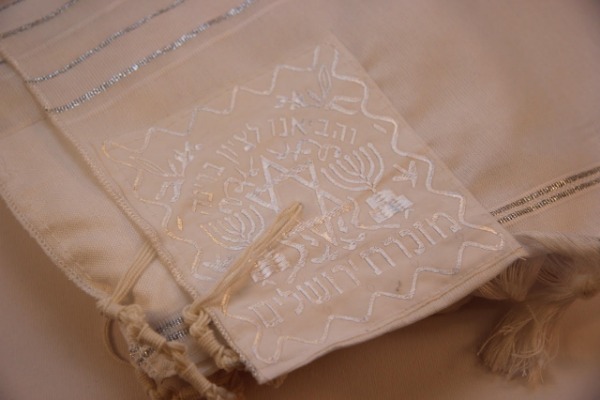Talit - Tallit
Bestsellers
The tallit (טלית) is the Jewish prayer shroud. Its main component is four special fringes or tassels called tzitzit (ציצית), fastened at the four corners of the tallit, which commemorate the 613 commandments (תרי "ג מצוות) given by the Lord. There are a number of customs associated with the wearing of the tallit during selected prayers. It is generally donned by elderly bar mitzvah (בר מצוה) men, and often also by elderly bat mitzvah (בת מצווה) women in non-Orthodox communities. In many communities, however, only married men wear the tallit.
The commandment to put on the tallit comes from the Torah and is found in Leviticus four and five, where it says, "The Lord said to Moses, 'Speak to the Israelites and tell them to make fringes on the edge of their garments throughout their generations, and over the fringes to put a purple ribbon. You shall have fringes, that when you look upon them you may remember all the commandments of the Lord and do them, that you may not follow your own heart and your own eyes, as fornicators do, that you may remember and do all my commandments and be holy to your God. I am the LORD your God; I brought you out of the land of Egypt to be your God. I am the LORD your God.'" (Nu 15:37-41) and "You shall make tassels on all four corners of your covering with which you cover yourself." (Deut 22:12).
In addition to the large tallit, which we put on during the selected prayers, there is a small tallit, called the talit katan (טלית קטן). It is a simple rectangular tallit with a hole for the head in the middle and four tzitzit (pl. from tzitzit), which some men wear under their clothes. The large talit, on the other hand, is placed over the shoulders and some people wear it over their heads. The tallit can be of different sizes and colours. A common combination is white with black or blue stripes.
The tallit is worn during the morning prayers called shacharit (שחרית) and during all prayers on Yom Kippur (יום כיפור). It can also serve as a chupa (חופה), which is a wedding canopy used in Jewish weddings.






